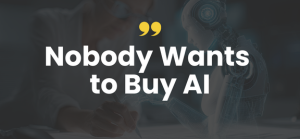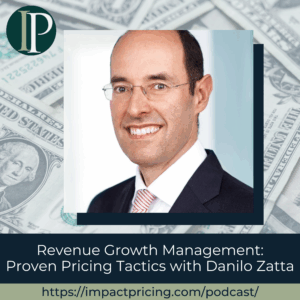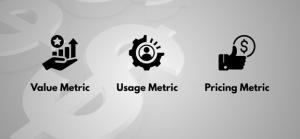Andrew Butt is a Co-founder & CEO of a Silicon Valley venture-backed SaaS platform called Enable, which deals with rebate management. He has been a director of several other companies and not-for-profits. He has started and grown multiple businesses into profit and positive cash flow, including exit to PE.
In this episode, Andrew talks about using rebates to incentivize distributors to meet the goals manufacturers have in mind. He shares how manufacturers create different rebate programs with various supply chains to work closely together to provide consumers better service.
Podcast: Play in new window | Download
Why you have to check out today’s podcast:
- Find out how Enable can help manufacturers deal with data flow complexities and execute well the rebate programs for the different supply chains involved
- Understand why you should go for rebates rather than discounts in a B2B setup
- Find out how rebates provide a symbiotic relationship among the supply chain in the B2B sector
“Definitely have some kind of rebate incentives in place because I do genuinely believe that they can drive that behavior in a way that a pure price on its own can’t do. That, I think even with rebates, keep it simple, make it clear to customers what they need to do and what benefits they can get.”
– Andrew Butt
Increase Your Pricing Knowledge: Become a Champions of Value INSIDER!
To sign up go to insider.championsofvalue.com
Topics Covered:
01:12 – How Andrew found his path to a Pricing career
02:06 – What kind of rebate is Andrew talking about
02:34 – How different is a B2B rebate from a consumer-type rebate
03:32 – Talking about rebate’s bad reputation with B2C
04:46 – Addressing rebates’ bad reputation in the B2B sector
05:40 – Why go for rebates than just discounts
07:15 – The need for data sharing between manufacturers and distributors
09:20 – How rebates work outside of the usual supply chains
10:09 – The disadvantage of manufacturers incentivizing end-customers directly
10:59 – What problem does Enable help to solve
13:31 – Automating transactions, especially where a rebate is concerned
14:22 – How Enable helps companies on what they are already doing in terms of rebate execution
15:47 – Helping companies realize the power of rebates
17:34 – How rebates can be very effective
19:02 – What is ‘ship and debit’
19:41 – Industries where he sees rebates successful aside from warehousing or distribution
21:40 – Why is hardware companies more likely to have rebates than software companies
22:37 – The most creative rebates he has seen
23:49 – Big drivers for creative behavior inside a channel
24:56 – Andrew’s best pricing advice that can greatly impact your business
Key Takeaways:
“I think rebates generally are all about driving behavior. And because they are claimed back retrospectively, you have to do something to collect the rebate. That’s how it’s designed to drive behavior.” – Andrew Butt
“Rebates are the currency of joint business partners that exist between trading partners. So, it’s a lot more kind of ongoing than just a B2C type one-off rebate situation.” – Andrew Butt
“Rebates are not at all a bad thing like we might think about with some of those consumer nightmares. It really is about a genuine and very effective incentive program similar to what you might have with your own sales team.” – Andrew Butt
“We had many situations where manufacturers were not paying the rebate that was promised, not because they were trying to be malicious, but they just couldn’t calculate it and couldn’t work it out. You could have situations where distributors abused manufacturers and claimed too much more than what was due. And the whole idea that we’ve been talking through here, which is so powerful, was just not being executed well. Enable saw the opportunity to automate that with a SaaS software platform, which is exactly what we’ve done.” – Andrew Butt
“We really believe that in every trading relationship, any of the buying and selling relationships, there should be these intelligent kinds of deals, these incentive deals in place that can be kind of tracked on both sides using the same language, and then each party can be rewarded when they hit the goals.” – Andrew Butt
Connect with Andrew Butt:
Connect with Mark Stiving:
- Email: [email protected]
Full Interview Transcript
(Note: This transcript was created with an AI transcription service. Please forgive any transcription or grammatical errors. We probably sounded better in real life.)
Andrew Butt
Definitely have some kind of rebate incentives in place because I do genuinely believe that they can drive that behavior in a way that pure price on its own can’t do. That, I think even with rebates, keep it simple, make it clear to customers what they need to do and what benefits they can get.
[Intro]
Mark Stiving
Welcome to Impact Pricing, the podcast where we discuss pricing, value, and the giving back relationship between them. I’m Mark Stiving. Today, our guest is Andrew Butt. Here are three things you want to know about Andrew before we start. He is the CEO and co-founder of Enable, a software that deals with rebate management, which we’re going to talk a lot about today. This is his third successful startup. He knows what he’s doing. And probably my favorite thing is, he’s a helicopter pilot. Welcome, Andrew.
Andrew Butt
Hi, Mark. Thanks for having me.
Mark Stiving
It’s going to be fun. I was asked this question, and maybe you don’t even think you are in but how did you get into pricing?
Andrew Butt
I got into pricing. You mentioned flying; I met my co-founder when we were both learning to fly. And he was running a large distribution business, which was very successful, but had lots of challenges around managing pricing within the business and being an IT guy, I kind of started to help solve them.
Mark Stiving
Nice. So, you actually ruin the pricing more than just rebates.
Andrew Butt
Yeah, absolutely. And the complexities of pricing around distribution. But I think what we found is, rebates were a particular kind of challenge, like spaghetti being managed in spreadsheets and all over the place. So that’s why we kind of focus there.
Mark Stiving
Okay, so I think it’s obvious that I and most of my listeners understand what a rebate is, in the sense that we go buy something at the store, they give us a rebate coupon, and we may or may not fill it out and send it in and get a rebate back. Is that what you’re talking about? Are you talking about something different than that?
Andrew Butt
Sure. So, most of what I’m talking about is really B2B rebates, as opposed to the consumer-type rebates as you mentioned, Mark. And that is really different and happening at scale, as opposed to just as individuals claiming the old coupon back.
Mark Stiving
Got it. And so, what’s different in B2B. I’ve heard nightmare scenarios. And so, I really want to explore this B2B rebate, what it looks like, who would use it. Let’s start with what’s different about B2B rebates?
Andrew Butt
Sure. So, I think rebates generally are all about driving behavior. And because they are claimed back retrospectively, then you have to do something in order to collect the rebate. So that’s how it’s designed to drive behavior. And I think in B2B, it’s really kind of all about driving our behavior across a supply chain, and trying to hit objectives over time. And it’s kind of, really for me, rebates are the currency of joint business partners that exists between trading partners. So, it’s a lot more kind of ongoing than just a B2C type one-off rebate situation.
Mark Stiving
So, we think of this B2C rebate as you have to go do something, and then I’m going to send you money. And in the B2B world, it’s something like that. But what’s different is we’re trying to construct a business model of business operation that makes sense for both of us. And that we both execute it. Is that close?
Andrew Butt
Absolutely. I mean, I was just thinking that when you mentioned that you’ve heard lots of nightmare stories, and I guess rebates possibly have got a bad reputation when it comes to B2C. And maybe because it’s some kind of tactic where people hope that consumers don’t claim the rebate. And this is kind of a con. Whereas what I see in B2B is, it really is like an incentive program that you’d have with your sales team. And what I see is this kind of indirect supply chain, where you’ve got manufacturers trying to get products to customers, through a distributor or through the channel. And you really are trying to incentivize those distributors to get the products that you want to market and the volume that you want. And so, the rebates are not at all a bad thing, like we might think about with some of those consumer nightmares. It really is about a genuine and very effective incentive program similar to what you might have with your own sales team.
Mark Stiving
Yeah, it’s funny because you bring up the B2C side where I think consumers tend not to actually fulfill the rebates or ask for the rebates back. What I’ve heard is a nightmare in the B2B world. And please tell me if I’m wrong, is the exact opposite of that., where once I offer you a rebate program, nobody really checks to see if you did your thing. You just expect to get the rebate later at the end of the year.
Andrew Butt
Yeah. That’s a really good point. And I think one of the reasons I’m passionate about rebates, which is maybe a funny thing to say, maybe there are many people that are passionate about rebates is that they have often lost their power and they’ve become, some people say, have become deferred discounts for the reason you say, Mark that people just expect to get them. And they’re not actually doing what they should do. And the fact is, it should be possible and it is possible to track a behavior effectively, and actually check that those things are happening. And when you get that working nicely, I’ve seen great things happen. And I’ve really seen those kind of supply chains come together. And that tight integration across the supply chain where the rebates are working effectively, and actually driving mutually profitable growth for both parties, both the seller and the buyer.
Mark Stiving
So why a rebate and why not just giving a discount to the distributor?
Andrew Butt
Sure. So, the reason why, is, because… so manufacturers really want to hit certain volume and value targets. And so, let’s say, let’s take a simple example, I’m selling you this glass of water here, and I’m selling it to you for $1. And you might say, well, I want it for 90 cents. The thing with that is if I agree, you might only buy one unit, but I want you to buy a million units. So, I say to you, you know what, you’ve got to pay me $1 for this, but once you’ve hit 100,000 units, I will then send you 10 cents back per unit. So, in that sense, it’s very much an incentive to say, and that’s a very simple example. The more realistic example is, I would really like to get this product into certain parts of the country into certain types of customers, you know, I’d like you to sell specific products rather than any product so I can create these programs. And then once you’ve hit those numbers, you then get the rebate back. If it was just based on pricing, then there would be no way to actually kind of drive towards that goal.
Mark Stiving
Okay, and so let’s stick with talking about manufacturers offering rebates to distributors for a minute. And it seems that the manufacturer has to gather information from the distributor. If it’s simply a volume base, then I know how much you bought from me. So, I’m going to assume you sold it through, and that’s fine. But what if it’s, ‘Oh, I want you to target this industry’. ‘I want you to target this region’, ‘I want you to target whatever happens to be.’ Now there’s a set of information that as a manufacturer, I may not have?
Andrew Butt
Yes, exactly, yeah. And that’s where it can become more work to manage. But essentially, there has to be some data sharing between the parties. So, the distributor would have to provide information back and maybe spreadsheets to show, this is where I’ve sold products to, this is the volume I sold. And there has to be that kind of exchange of data. And there has to be some verification of that, of course, to make sure it’s not, you know, fabricated.
Mark Stiving
Yeah, absolutely. So, I lived in the semiconductor world for a while where we sold through distributors a lot. And we had the distinct advantage of getting point of sale information. So, they would always tell us who they sold it to, what price they sold it for. Hugely valuable information. I could see creating a rebate program specifically so that I could capture POS data for a distribution channel.
Andrew Butt
Yes, absolutely. Yeah. And there’s so many different programs that can be created. And again, in terms of what I’m passionate about, it is bringing those supply chains together. And it’s recognizing that often manufacturers are great innovators, they produce great products, they’re very efficient, very high quality, but they’re not close to customers. And they can’t be because customers are all over the US or even all over the world. So, the kind of symbiotic relationship between distributors and manufacturers is important. And being able to share data, and also share reward to achieve those goals is something which can really bring these guys together. Now, the reason to do that is to better serve the customer at the end of the day, because both parties want to provide better service to the customer. And they will do that by working closely together.
Mark Stiving
Okay, so this is making sense to me, we’re going to use rebates so that we can incentivize behaviors from our customers. And we get to pay them for when they do what we want them to do. So that makes a ton of sense. Now, the question is, how does this work or can you see this work outside the distribution channel? So, who else should I, as a manufacturer give a rebate to and hoping that I can influence their behavior?
Andrew Butt
Yeah, absolutely. So, the short answer is yes. And we’re saying this in all sorts of areas. So, one example is recruitment. We’ve been talking to some recruitment companies where they actually pay rebates to their customers. And in that way, it’s like an incentive scheme. So, I talked about distributors, manufacturers, but it doesn’t have to be that kind of three-tier supply chain. There’s plenty of examples of companies that deal directly with customers, and they want to provide a loyalty program to say if you place this much business with me, you will then get this money back. And that works really well, as well.
Mark Stiving
Yeah, one of the things I always thought about doing is when I was in the semiconductor industry, was offering rebates to end-customers. So that I didn’t have to worry about, did the channel do what I wanted them to do, but I could get the end customer to behave the way I wanted them to be?
Andrew Butt
Sure, yeah, that does happen a lot. And again, it creates all sorts of complexities, because you’ve then got these claims coming in, these rebate claims coming in from kind of unknown entities that you as the manufacturer have never dealt with and that you don’t know them. So that does present some challenges. But you’re absolutely right. It presents that opportunity to establish a direct connection. And I guess, we use the word rebate, which again, possibly has some negative connotations. But all it really means is just paying money back, it’s just rebaiting something back, and there are so many forms of that money going back, there can be promotional funds, there can be market development funds, there can be all sorts of pots of kind of incentive money going back to the customer.
Mark Stiving
So, what was the problem that you guys solved when you started your company? Why did you start Enable?
Andrew Butt
Sure. Well, you’ve actually touched on many of the bad points, Mark, the questions you’ve already asked, which is, this data flow is very complex. So, you’ve got, let’s stick with that three-tier example of a manufacturer or distributor, and then the end-customer. The distributor needs to be able to provide data back so it could be point of sale the data back to the manufacturer of what they’ve been up to, and that has to be validated. And based on that money has to be paid. And these are all the things which were not happening at all, well, because they’re difficult, they can be very manual. And as a result of that, we had many situations where manufacturers were not paying the rebate that was promised, not because they were trying to be malicious, but they just couldn’t calculate it, and couldn’t work it out. You could have situations where distributors abused manufacturers and claimed too much, you know, more than what was due. And the whole idea that we’ve been talking through here, which is so powerful, was just not being executed well. So, we saw the opportunity to automate that with a SaaS software platform, which is exactly what we’ve done.
Advertisement
Let’s talk about your career. You have one boss, but you have to work with many different departments. You have great ideas, but you can’t seem to get them adopted. Face it, you want to earn a promotion, the solution could be the insiderprogramofchampionsofvalue.com. For only $100 a month, you’ll have access to all of our online courses, you’ll have access to me through office hours, and you’ll become part of a network of peers helping each other out as well. Sure, you’ll learn more about pricing. But what you’ll really learn is pricing leadership. What does it take? How do you do it? You won’t get promoted just doing your job. Join us to learn how to become influential. Isn’t it worth $100 a month to work towards your promotion? Heck, if your company has a training budget, you can probably access that once you’ve internalized these concepts around value, you will become unique, respected, and promotable. Come join us at insider.championsofvalue.com.
Mark Stiving
So, it sounds interesting in the sense that there are a lot of pricing companies out there that essentially automate the transactions, the quoting, and what you’ve essentially said is, here’s this piece of pricing that goes on that nobody’s managing well, let’s try to help manage that.
Andrew Butt
Yeah, exactly. And we really believe that in every trading relationship, any of the buying and selling relationship, there should be these intelligent kinds of deals, these incentive deals in place that can be kind of tracked on both sides using the same language, and then each party can be rewarded when they hit the goals. So, I think fundamentally, pricing is essential, but then having this overlay to kind of drive performance and say, based on my market share this quarter, you know, what I’m saying, you know, with the new products I’m launching, I really want to try and kind of drive the market in this particular way. And I’m going to use rebates to do that.
Mark Stiving
Yes, so let’s, we’ve been talking about rebate execution. How do we manage that? What I would find fascinating, is, how do you coach companies to do rebates? And do you guys do that?
Andrew Butt
Sure. That’s a fascinating point. And I think there’s such a big problem now, in terms of the amount of rebates already in play, that are not well-managed. What’s taking up all of our kind of time and capacity is just helping companies solve what they’re already doing, or should we say automate what they’re doing and getting better at what they do. So that’s the focus right now. But we are seeing examples of where companies actually start doing more and becoming more dynamic and more fluid and creating more rebates once they’ve got the tools to do that. And in that way, we can start to offer some best practice, and this is what we’ve seen. And again, it’s all about this mutually profitable growth of saying if the manufacturer can grow their sales, profitably, then the distributor can do the same, as well. So, I do see an opportunity for that very much.
Mark Stiving
Yeah, I would agree. Because I can tell you that in the world that I was in, we often talked about trying rebates, but the complexity of managing it, etc. just kept us from wanting to do it. We said, ‘No, we’re not going to bother. And so, I can see a lot of people who you said, ‘Yes, I’ll take the leap, I’ll do rebates.’ And they struggle with the complexity, which you help them solve today. But I think the real win is helping companies who don’t do them today realize the power of rebates and how it’s not this complex problem that you have to go solve because here’s the solution to the problem.
Andrew Butt
Yeah, I would certainly agree. And it’s fascinating that often, we see companies have rebates with, let’s say, their top 20 trading partners, whether that’s their suppliers, or customers. And that’s what they’re trying to solve. And what they recognize is in that long tail of much smaller trading partners, there’s so much more they could do, but they just haven’t ever tried. Because their point is, it’s been too difficult. So, we can help them tap into that long tail. But I mean, a question for you, Mark is, we come across this thing around net pricing all the time where companies have their pricing, they know what they pay, but because they get rebates as well, and it can be multiple, trying to work out the actual kind of underlying cost price, if you like, the net price is very difficult. So that’s something we can also help on. But does that come up with you and your listeners this source of trying to work out the true net price?
Mark Stiving
No. So there’s this thing called a price waterfall, where a rebate would certainly fall into the price waterfall, and we’re looking at what McKenzie calls the pocket price. So, you can think of it as the net price. What do I actually put in my pocket after all of my expenses, which could be marketing dollars, it could be rebates, it could be shipping costs, right? It’s specific to an order, or specific to a transaction. And so, we could certainly see that as a valuable piece. But one of the main problems I always saw with rebates was who gets the credit. So, finding and trying to sell to a purchasing agent, and the purchasing agents negotiated a 10% discount with a 3% rebate, if they hit these milestones. They don’t ever get that 3% credited back to them for their bonus. So, then much prefer the discount than the rebate?
Andrew Butt
Yeah. Well, I think this is where we can get creative, and it can benefit multiple parties at the same time. So, there’s no reason why the agent couldn’t also get a slice of that rebate. What we are seeing is, these rebates are also getting more targeted and more specific. So, they might sometimes be just an umbrella. So, say on all purchases, all sales, but then you can get right down to specific customers. So, I might approach you, Mark, I’m, let’s imagine I’m buying products from you now. And I approach you and I say I’ve got this one big customer; they’re going to play some massive orders. But we need to do, I need more support from you to win the business. And if we can’t get it, there’s a risk, they will go to your competitor. And we’ll both lose. So, we’re going to both win here if we can do something, and a deal will be put together just for that one customer through the chain, if you’d like from you to me and then to that customer. But that can only work when the data is transparent. So, in your example of the agents, there’s no reason why they couldn’t be cut into that and could benefit and it’s all about aligning behavior and getting everyone to behave in the same way. And that’s something where I think rebates can be very effective.
Mark Stiving
I think it’s a really good thing at aligning the company. I was pointing out the agency problem of the specific procurement person. By the way, what you just described happens in semiconductors constantly. It’s a process called ship and debit. And they do this for many, many companies. I never thought of it this way. But ship and debit is truly just a rebate.
Andrew Butt
It is. Now, ship and debit we come across all the time. Also, you mentioned co-op funds mean that is something which is often rebated back, and also special pricing agreements, SPAs. I mean, that’s in a similar bucket to ship and debit. But there’s one thing which never ceases to amaze me, which is my vocabulary keeps growing in this industry because all these words, you know, ship and debit, special pricing, everyone talks about these things, using different words. But I think someone else I spoke to call them deviations for example, price deviations.
Mark Stiving
Nice. And so, what other industries do you see rebates being successful, besides warehousing or distribution?
Andrew Butt
Sure. So, yeah, I mean, I think with distribution, it’s so many verticals, and we see this in automotive and electrical, and construction. Pharmaceuticals have a huge space. This goes on all the time there. But outside of that I mentioned recruitment as an example. Certainly, financial services. When you get into things like telecoms, and mobile billing and a billing for events that happen on a mobile network that this does pop up in all sorts of places, but probably under different names, and guises. But I really do genuinely see any B2B relationship, let’s say you are supplying B2B customers directly, and you want to kind of give them a loyalty program, then this is a great way to do that. And that can work and does work in any industry, hardware and software, and IT generally, you know, this does go on all the time, as well. So, it isn’t just physical goods. It’s really any type of trade. But I think it is B2B. And as you said, at the beginning, the B2C thing is completely different.
Mark Stiving
Yeah, there’s definitely different. What do you think it is? And I know you’re trying to convince me it’s not different at all. But what do you think it is that makes hardware companies, so physical distribution companies, more amenable to rebates than, say software companies?
Andrew Butt
So, it’s a really good question. I mean, I think there are rebates in software. And it’s not something I’m, in a way, I’m answering a question in a way I’m not, so, I don’t know a lot about kind of rebate in software. And it just so happens that we’ve had a lot of interest and demand in these goods, which are more kind of physically related. But that’s just because we followed a strategy of working in a sector and then kind of growing from there and doing more in that same sector. So, whether it’s just almost accidental, or whether it is indeed, because that’s just how the world works, that there’s a lot less rebates in software, I really don’t know. So, let me ponder on that thought for another minute.
Mark Stiving
And always, if you come up with an answer, send me a note, and I’ll put it on the show notes. Because, yeah, because I’m actually thinking about it myself, too. And I don’t have a really good answer. Other than, I think in hardware, you often get this multi-tier distribution. And in software, you don’t have as much as many distribution channels. We’ll put it that way.
Andrew Butt
Yeah. I think that’s fair, I think where you are, again, because rebates are trying to drive behavior across a supply chain, you would tend to have that more kind of extended supply chain, to your point in physical goods than software. But I guess my belief is, this is such an effective way to kind of drive loyalty that it doesn’t need to be an extended supply chain, it can just be and we do see it being just between a company and its customers, which would apply to software as much as anything else.
Mark Stiving
Yeah. Okay, so what’s the most creative rebate that you’ve seen?
Andrew Butt
Well, we know that buyers and sellers are creative, and they come up with all sorts of weird and wonderful deals. So, the deals and the rebates are often product specific. So, they can be in different units of measure. So, we said a very simple one is just volume. That’s very simple, but I’ve seen them where that you get into boxes, or kind of by pound weight, or by square meters, if it’s a physical product, there’s all sorts of deduction-type formulas, where you have to calculate one and then deduct the earnings from that before you calculate the next one. So, these are called strings or waterfalls, you get deals, which are back to dollar one. So effectively, you buy this many units and you get 5%. Then this, when you get 10%, 10% goes right back to dollar one. Another’s well, that’s not the case, it’s just stepped, but you don’t get that benefit. So, there’s all sorts of combinations and trying to work without I said earlier, it’s like spaghetti. So yeah, I think we will never see the end of kind of buyers coming up with more creative ways to do deals.
Mark Stiving
Yeah, nice. And so, on the other side, what are the most creative behaviors they’re trying to drive inside their channel?
Andrew Butt
Yeah, I think it is really trying to kind of achieve market share goals, that’s a big one. So, it’s recognizing that we are very strong in Southern California with a particular type of product in convenience stores, okay. But then in kind of, let’s say, in a different state, with that products were kind of significantly below the competitor. So, we’re now going to make it disproportionately more profitable for people in that part of the world to sell that product to be able to move that balance. I think, also new product launches is a big one, where people are creatures of habit, they’re buying the same thing again and again and again. And I’m prepared to really invest and give away a huge amount of margin to get a new product to market. Because once people start experiencing it, I know that they’ll just repeat-buy. So those probably new products and kind of moving the market across different geographies would be the two big drivers.
Mark Stiving
Nice. Yeah, we’re going to have to wrap this up with the final question for you. What’s one piece of pricing advice that you would give our listeners that you think would have a big impact on their business?
Andrew Butt
But I think simplicity is always good. So, I would say, keep pricing simple as possible. Of course, my advice is to definitely have some kind of rebate incentives in place. Because I do genuinely believe that they can drive that behavior in a way that pure pricing on its own can’t do. But I think even with rebates, keep it simple. Make it clear to customers, what they need to do and what benefits they can get.
Mark Stiving
Yeah, excellent. And we didn’t actually say these words out loud, but I’ll say it now, one of the best things about rebates is instead of letting a customer promise they’re going to buy a million units. We just say you can have the discount after you’ve bought a million units.
Andrew Butt
Yeah, that’s the best. That’s the kind of great summary of why these things exist.
Mark Stiving
Excellent. Andrew, thank you so much for your time today. If anybody wants to contact you, how can they do that?
Andrew Butt
Yeah, so I mean, my just enable.com so just literally go on to enable.com. and you can contact me and see all of our social media from there and certainly gets my contact details there as well.
Mark Stiving
Excellent. Thank you so much, Andrew. Episode 104 is all done. To our listeners, would you please leave us a review? These are very valuable to us. Prof Desting wrote us, Fabulous show, insightful.
“Mark really understands pricing and is able to teach lessons regardless of who the guest is. He seems to be asking the questions I want to ask.”
Thank you, Prof. And visit our new website impactpricing.com. We will have all of our content up on the main page here in the very near future. And if you have any questions or comments about the podcast or about pricing in general, feel free to email me, [email protected]. Now, go make an impact!

















